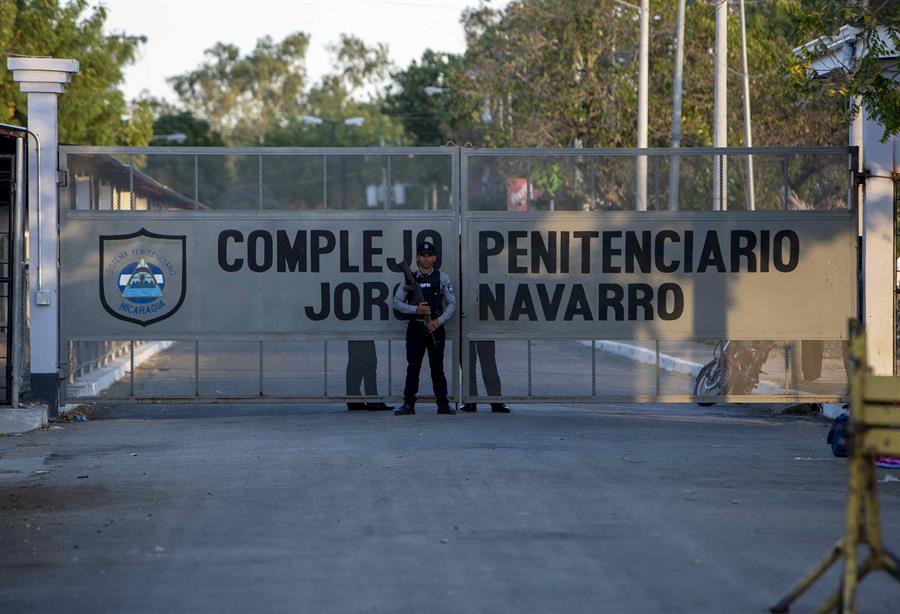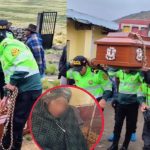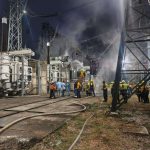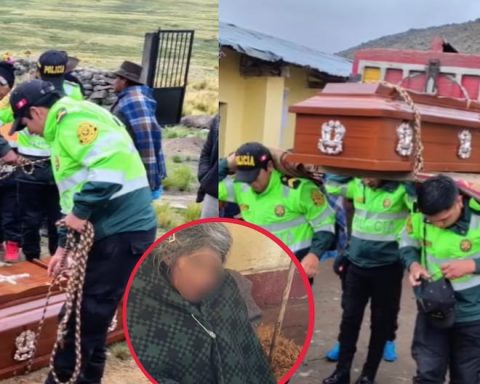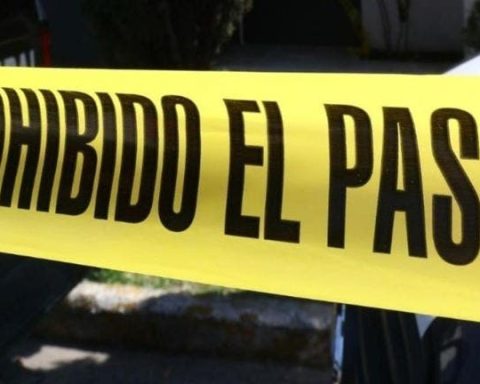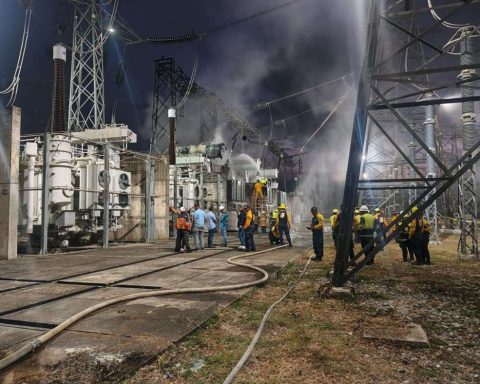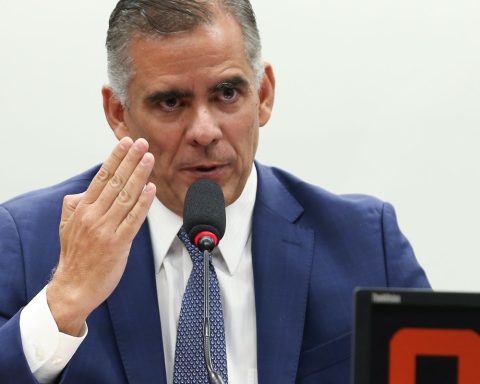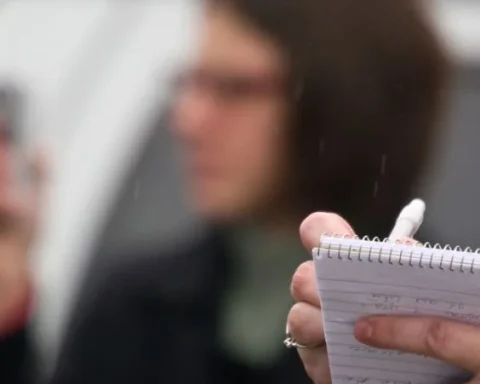At 59 years old, Eliseo Castro Baltodano is one of the more than 200 political prisoners of the Daniel Ortega and Rosario Murillo regime in Nicaragua. Although his name is little known, he is one of prisoners of conscience who have been imprisoned in the National Penitentiary System (SPN) for a longer time and whose health has seriously deteriorated.
Castro Baltodano suffered a stroke on September 13, 2021. As a result, he lost his speech, cannot walk or perform his physiological needs on his own. “He is conscious, but he is practically like a child,” he said. “Federico”, a source close to his family.
Due to the delicate state of health of the political prisoner, he was transferred more than a year ago to a room in the Antonio Lenín Fonseca hospital, where he remains in police custody and the officers “take photos of everything that is going to be given to him.” him (Castro), to the food, the pills, to everything, ”explained the relative.
But the health of the political prisoner “does not show improvement”, on the contrary, in recent months “he has been losing his sight, he hardly looks, he only hears in one ear, he has been getting worse,” says the relative.
The source also indicated that the political prisoner he remains sedated most of the time because he suffers from seizures. “There are medications that help him in certain things, but they are rubbing him in others like the kidneys, recently he had high creatinine, from there he had a kidney infection and things like that,” he explained.
Castro was arrested in September 2019 near his home, in the Colonia Maestro Gabriel park, in Managua, by armed civilians and police officers. He was charged and convicted of the crimes of “manufacturing, trafficking, possession and use of restricted weapons or explosive devices.” The Ortega justice sentenced him to six years in prison and 350 days fine.
The situation “has been exhausting for the family,” the source said. They “have requested the change of precautionary measure” to home for jail, but he regrets that, as happens in most cases of a political nature, “they have not resolved them.”
Torture and cruel treatment continue
Torture and cruel treatment of political prisoners are practices that continue to occur in the different prisons in Nicaragua, according to the Mechanism for the Recognition of Political Prisoners, but it is increasingly difficult for family members to denounce these abuses, due to the repressive escalation of the Ortega-Murillo regime.
In the month of August alone, the Mechanism registered cases of isolation and theft of belongings to prisoners of conscience in the National Penitentiary System, in Tipitapa; overcrowding and limited access to water service in the prisons of Granada and Matagalpa; and lack of medical care for prisoners in La Esperanza prison, in Tipitapa.
“Within the Jorge Navarro National Penitentiary System, known as La Modelo, repression has increased in recent months,” warned the Mechanism in August. “There have been recorded attacks on three political prisoners by common criminals who entered their cells and proceeded to steal their belongings, beat them and injure them, even with knives,” he continues.
The Mechanism also reported the case of a political prisoner to whom the SPN authorities have denied family visits since October 2021, for which they remain in “an isolation and incommunicado regime.”
In the Granada Penitentiary System, known as La Granja, one of the political prisoners is in an overcrowded cell along with 165 common inmates. While in the Waswalí prison, in Matagalpa, one of the political prisoners was relocated to a cell with 400 common inmates, with access to half a bucket of water a day to cover all needs.
“These prison conditions constitute a form of inhuman and degrading treatment that in turn affects the health of detainees,” warns the Mechanism.
in the women’s prison, known as “La Esperanza”, the health of political prisoners “continues to deteriorate”, warns the document. Two of the prisoners of conscience have developed blood pressure problems and another two, who had this problem since before being imprisoned, “have not been subjected to the pertinent medical assessments and therefore do not receive adequate treatment,” they stress.
sick and helpless
In mid-July, the family of the political prisoner Alexis Peralta He learned from a person who left the Estelí prison system that his relative was ill, but it was until they were able to see him, on September 5, that the prisoner of conscience shared some of the ills that afflict him.
“Marcos”, a source close to Peralta’s family, reported that the prisoner of conscience suffers from three herniated discs, has a tumor in one of his kidneys, high blood pressure and high cholesterol, and fears that he may even have other ailments because “he He doesn’t even count all the things that happen to him there (in jail) so as not to worry them.”
The source also indicated that the political prisoner “was in very serious condition” and that they even gave him some medical tests, but he does not know if it was in the prison clinic or in a hospital.
“He (Peralta) has been complicated because he has several chronic diseases,” the source warned. In addition, he “is very depressed” and “he is afraid to tell everything they do to him there because later it goes wrong,” he continued.
Among the sick political prisoners are also the member of the Blue and White National Unit, Nidia Barbosa; student Kevin Solís, opponent Walter Montenegro, and prisoners of conscience María Esperanza Sánchez and Kevin Zamora. Most of them with blood pressure problems.
Family members censor themselves
For the families of political prisoners, it becomes more difficult every day to denounce the arbitrary detentions, the serious violations of the human rights of their relatives and the conditions of detention in the different prisons. Due to the rescalation of threatsharassment and persecution by sympathizers of the regime or the Police are afraid to speak before the media and even human rights organizations.
The objective of the regime, by threatening the relatives of prisoners of conscience “is to block information and the denunciation of prison conditions, as part of a systematic repressive policy aimed at silencing the situation of political detainees and blocking the denunciation in the outside”, warns the Mechanism.
“There is no doubt that defenselessness in the face of state violence has had devastating emotional effects on Nicaraguans and even more so in the absence of a rule of law that provides guarantees for the full exercise and enjoyment of human rights,” the document continues. .
The repression has also forced some families of political prisoners to “opt for self-censorship or request that their relatives not be included in the lists that are published monthly,” warns the Mechanism. Thus, in addition to the confinement, the dictatorship tries to condemn political prisoners to oblivion.
